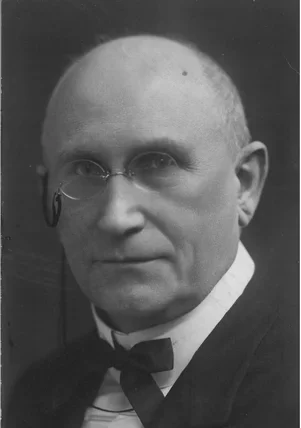Picking up where we left off previously, only a decade and half younger than Hilary of Poitiers, Basil the Great (c. 330–379) emerged as one of the early church’s most zealous critics of usury. Like many before him, he appealed to Psalm 15 in particular as clear evidence of the binding moral prohibition against lending at interest, and he once preached a powerful homily against usury on the text of this psalm. I assure you, the entire sermon merits careful and repeated reading; here, however, I offer only a few representative excerpts:
Read MoreFilter by Author
- Guest Author 1 146
- Ben Ball 121
- Larry Beane 655
- Travis Berg 9
- Jason Braaten 238
- Fr. Mark Braden 46
- John Bussman 70
- Heath Curtis 411
- Sean Daenzer 12
- Anthony Dodgers 40
- Burnell Eckardt 479
- Gottesdienst Editorial 19
- Karl Fabrizius 25
- Stefan Gramenz 37
- Adam Koontz 8
- David Petersen 203
- Stephen Preus 6
- The Priestman 1
- Evan Scamman 17
- Jonathan Shaw 12
- John Stephenson 50
- Rick Stuckwisch 90
- William Weedon 49
Filter by Category
- Adiaphora 11
- Advent 4
- Announcements 25
- Bible 20
- Catechesis 10
- Celibacy 1
- Church Fellowship 4
- Culture 33
- Death & Dying 5
- Doctrine & Practice 30
- Donor Drive 3
- Eighth Commandment 1
- Feasts & Festivals 8
- Gender 4
- Historic Lectionary 14
- History 3
- Hymns 5
- Lifehacks 2
- Liturgy 39
- Luther 5
- Marriage 6
- Ministry 18
- Music 7
- Pastoral care 12
- Polity 13
- Prayer 2
- Preaching 40
- Quote 3
- Rites/Ceremonies 14
- Sabre of Boldness 1
- Saints 9
- Sanctoral Calendar 10
- Satire 3
- Sermon 30
- Synod 23
- Theology 17
- Worship 1
Filter by Month
- September 2025 13
- August 2025 29
- July 2025 19
- June 2025 28
- May 2025 17
- April 2025 20
- March 2025 24
- February 2025 20
- January 2025 24
- December 2024 22
- November 2024 25
- October 2024 27
- September 2024 17
- August 2024 23
- July 2024 10
- June 2024 14
- May 2024 10
- April 2024 13
- March 2024 18
- February 2024 11
- January 2024 18
- December 2023 19
- November 2023 13
- October 2023 15
- September 2023 23
- August 2023 12
- July 2023 21
- June 2023 13
- May 2023 16
- April 2023 9
- March 2023 14
- February 2023 18
- January 2023 26
- December 2022 17
- November 2022 16
- October 2022 19
- September 2022 21
- August 2022 25
- July 2022 19
- June 2022 24
- May 2022 15
- April 2022 26
- March 2022 29
- February 2022 20
- January 2022 24
- December 2021 23
- November 2021 18
- October 2021 26
- September 2021 20
- August 2021 25
- July 2021 13
- June 2021 24
- May 2021 14
- April 2021 22
- March 2021 15
- February 2021 21
- January 2021 20
- December 2020 26
- November 2020 22
- October 2020 30
- September 2020 17
- August 2020 12
- July 2020 10
- June 2020 17
- May 2020 14
- April 2020 13
- March 2020 24
- February 2020 18
- January 2020 17
- December 2019 16
- November 2019 27
- October 2019 23
- September 2019 32
- August 2019 21
- July 2019 8
- June 2019 13
- May 2019 18
- April 2019 11
- March 2019 17
- February 2019 10
- January 2019 15
- December 2018 26
- November 2018 29
- October 2018 17
- September 2018 25
- August 2018 34
- July 2018 6
- June 2018 1
- May 2018 4
- April 2018 3
- March 2018 3
- February 2018 4
- January 2018 5
- December 2017 3
- November 2017 3
- October 2017 6
- September 2017 1
- August 2017 5
- July 2017 1
- June 2017 4
- April 2017 2
- March 2017 1
- February 2017 7
- January 2017 2
- November 2016 6
- October 2016 3
- September 2016 2
- August 2016 7
- July 2016 8
- June 2016 3
- May 2016 4
- April 2016 2
- March 2016 4
- January 2016 5
- December 2015 5
- November 2015 6
- October 2015 6
- September 2015 3
- August 2015 1
- July 2015 4
- June 2015 4
- May 2015 2
- April 2015 2
- March 2015 4
- February 2015 5
- January 2015 6
- December 2014 3
- November 2014 5
- October 2014 6
- September 2014 5
- August 2014 7
- July 2014 3
- June 2014 7
- May 2014 8
- April 2014 7
- March 2014 9
- February 2014 9
- January 2014 9
- December 2013 11
- November 2013 7
- October 2013 2
- September 2013 2
- August 2013 22
- July 2013 12
- June 2013 16
- May 2013 14
- April 2013 18
- March 2013 29
- February 2013 17
- January 2013 15
- December 2012 30
- November 2012 18
- October 2012 14
- September 2012 24
- August 2012 11
- July 2012 14
- June 2012 11
- May 2012 28
- April 2012 15
- March 2012 46
- February 2012 25
- January 2012 11
- December 2011 10
- November 2011 11
- October 2011 21
- September 2011 12
- August 2011 22
- July 2011 10
- June 2011 3
- May 2011 20
- April 2011 19
- March 2011 21
- February 2011 22
- January 2011 23
- December 2010 31
- November 2010 15
- October 2010 16
- September 2010 12
- August 2010 6
- July 2010 21
- June 2010 5
- May 2010 13
- April 2010 18
- March 2010 8
- February 2010 3
- January 2010 4
- December 2009 3
- November 2009 9
- October 2009 7
- September 2009 15
- August 2009 18
- July 2009 11
- June 2009 8
- May 2009 23
- April 2009 2
The preacher must learn to plagiarize Scripture.
Read MoreThis is the time of year in which we are ordaining men into the Office of the Holy Ministry. And because of this, it is also the time when we call to mind our own ordinations.
Read MoreThey were there because they had “bought spices.” For this was the continuation of an interrupted funeral. Little did they know that the funeral was not just delayed, but had been cancelled. They came bearing spices, including myrrh to anoint the body of the Anointed One.
Read MoreIt’s all about the numbers for them, and they want churches to be so big that you don’t get a pastor to visit you with the body and blood of Christ, to hear your confession, to comfort you with God’s Word. No, you get Doug from the bowling team or Sally the attorney.
Read MoreWherever the Lutheran Church ignored her symbols or rejected all or some of them, there she always fell an easy prey to her enemies. But wherever she held fast to her God-given crown, esteemed and studied her confessions, and actually made a norm and standard of her entire life and practise, there the Lutheran Church flourished and confounded all her enemies.
Read MoreI have no idea who is behind Liturgy Matters. But check out their videos on Facebook for their series of AI creations that show C.F.W. Walther’s reaction to “contemporary worship.” Great stuff!
Read MoreThe return to authentic Lutheranism and the restoration of the treasures that past generations have squandered are emerging both here and abroad. And it is a youthful movement, not only in terms of the freshness of this phenomenon, but also in the youth and vigor of those leading the way back to the road of faithful authenticity.
Read MoreI didn’t grow up in the LCMS. I entered as an adult, colloquizing as a pastor from another Lutheran body. Why did I do this? Because I wanted to freely teach and preach what the Bible says and publicly hold to the doctrine drawn from it and confessed in the Book of Concord without compromise.
Read MoreFor the next several parts of our series we will be discussing the early church fathers, whose collective witness on the question of usury is both extensive and strikingly unified. Given the breadth of their engagement with this topic, our survey must necessarily be selective. To illustrate the remarkable consistency with which these theologians opposed usury, I will present brief representative excerpts from a curated group of fifteen influential figures: Clement of Alexandria, Tertullian, Cyprian, Lactantius, Athanasius, Cyril of Jerusalem, Hilary of Poitiers, Basil of Caesarea, Gregory of Nyssa, Gregory Nazianzen, Ambrose, Jerome, Chrysostom, Augustine, and Leo the Great.
Read MoreThere was a recent video online that I found illustrative. It was clearly a scripted conversation told from a feminist perspective to try to make the traditional notions of marriage and family life look “oppressive” to women. The husband is expressing to his wife (who is wearing a police uniform) that he wishes that she would be a traditional stay-at-home wife. The wife rolls her eyes during his soliloquy (which is itself a parody of what real men who want traditional wives actually desire).
Read MoreA name is not just an accident; neither is it a convention which can be repealed by majority vote at the next meeting; once a thing has been given a name, it appears to have a certain autonomous right to that name, so that it could not be changed without imperiling the foundations of the world.
Read MoreHealey Willan (1880-1968) was an English-Canadian kantor, organist, and composer of both sacred and secular music from the Anglo-Catholic tradition. For reasons unknown to me, the Lutheran Church - Missouri Synod and/or Concordia Publishing House came to own much of his work.
Read MoreI find it ironic that we aren’t in fellowship with ELS or WELS because it seems that they have a lower view of the ministry than we do.
Read More


















